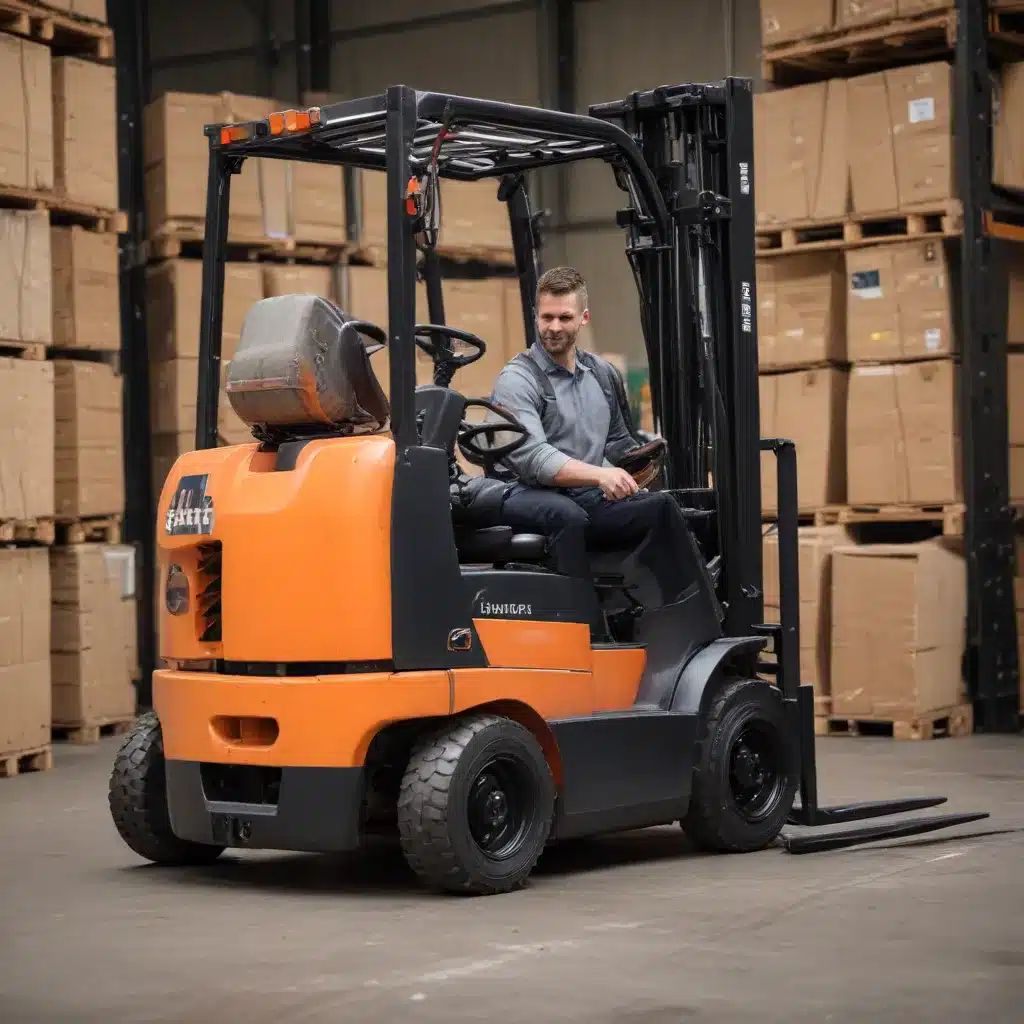
The Power of Emotional Intelligence in Forklift Operations
As an experienced industry expert in forklifts, warehousing, and logistics, I’ve seen firsthand the crucial role emotional intelligence (EQ) plays in forklift operator success. Beyond the technical skills and safety protocols, the ability to communicate effectively, read social cues, and collaborate seamlessly can make all the difference in creating a productive, harmonious work environment.
In this comprehensive guide, we’ll explore how forklift operators can leverage emotional intelligence to enhance their performance, strengthen team dynamics, and positively impact workplace culture.
Developing Self-Awareness
The foundation of emotional intelligence lies in self-awareness – the ability to understand and manage one’s own emotions. For forklift operators, this starts with recognizing how their internal state manifests in their actions and interactions.
“Humans do poorly when it comes to making decisions based on facts, rather than emotional issues. Humans get distracted easily.” – Rik Farrow, editor of ;login: for the USENIX association
By tuning in to their emotional responses, forklift operators can learn to regulate their behaviors, remaining calm under pressure and making clear-headed decisions. This self-awareness also allows them to acknowledge their own strengths, weaknesses, and triggers, paving the way for continuous improvement.
Mastering Interpersonal Communication
Effective communication is crucial in any workplace, but it takes on added significance in the fast-paced, safety-critical environment of a forklift operation. Forklift operators who possess strong interpersonal skills are better equipped to:
- Convey instructions and feedback clearly: Precise and unambiguous communication helps ensure that team members understand their responsibilities and execute tasks correctly.
- Listen actively and empathize: By actively listening to their colleagues and understanding their perspectives, forklift operators can foster an atmosphere of trust and collaboration.
- Adapt their communication style: Recognizing the unique communication preferences of different team members allows forklift operators to tailor their approach and build stronger connections.
“AI will enhance search to create interactive reasoning and analytical systems. Search engines today do not know ‘why’ we want some information and hence cannot reason about it. They also do not interact with us to help with analysis.” – Sanjiv Das, a professor of data science and finance at Santa Clara University
By honing their communication abilities, forklift operators can streamline workflow, reduce errors, and cultivate a more positive work environment.
Cultivating Collaborative Mindsets
In the dynamic world of forklift operations, teamwork is essential. Forklift operators who demonstrate emotional intelligence are better equipped to:
- Foster a spirit of cooperation: By promoting a collaborative mindset, forklift operators can encourage their colleagues to share information, offer assistance, and work towards common goals.
- Resolve conflicts constructively: When tensions arise, emotionally intelligent forklift operators can defuse situations, find common ground, and guide their team towards mutually beneficial solutions.
- Celebrate successes and support growth: Recognizing the contributions of their team members and offering constructive feedback helps forklift operators build a culture of continuous improvement and shared accomplishment.
“Networked AI will bring us new insights into our own lives that might seem as far-fetched today as it would have been 30 years ago to say, ‘I’ll tell you what music your friends are discovering right now.’” – Marshall Kirkpatrick, product director of influencer marketing
By developing a collaborative mindset and promoting a team-oriented culture, forklift operators can foster a work environment where individuals feel valued, supported, and motivated to excel.
Embracing Technological Integration
As the industry continues to evolve, forklift operators must also be prepared to integrate their emotional intelligence with emerging technologies. From AI-powered forklift systems to data-driven maintenance schedules, the successful forklift operator of the future will be one who can seamlessly blend their human skills with technological capabilities.
“AI voice recognition, or text, with strong context understanding and response will allow vastly better access to website, program documentation, voice call answering, and all such interactions will greatly relieve user frustration with getting information.” – Lawrence Roberts, designer and manager of ARPANET, the precursor to the internet and Internet Hall of Fame member
By approaching technological integration with emotional intelligence, forklift operators can leverage data and automation to enhance their decision-making, improve safety protocols, and create a more efficient, responsive work environment.
Cultivating Emotional Intelligence: A Lifelong Journey
Becoming an emotionally intelligent forklift operator is not a one-time achievement but a continuous process of self-discovery and growth. By focusing on developing self-awareness, communication skills, and collaborative mindsets, forklift operators can:
- Enhance their individual performance: Emotionally intelligent forklift operators are better equipped to navigate the complex social dynamics of the workplace, leading to improved productivity, job satisfaction, and career advancement.
- Strengthen team cohesion and collaboration: By fostering a culture of trust, communication, and mutual support, emotionally intelligent forklift operators can positively impact the overall effectiveness and morale of their work teams.
- Contribute to a safer, more efficient work environment: Emotionally intelligent forklift operators who can effectively manage their emotions, communicate clearly, and work collaboratively are instrumental in creating a safer, more efficient, and more cohesive workplace.
“Humans and machines will integrate more, improving health through monitoring and easing via machine control. Personal data will then become even more revealing and intrusive and should be kept under personal control.” – Jean-Daniel Fekete, researcher in human-computer interaction at INRIA in France
As the forklift industry continues to evolve, emotional intelligence will become an increasingly valuable asset for operators seeking to thrive in a dynamic, technology-driven landscape. By embracing this lifelong journey of personal and professional development, forklift operators can position themselves as indispensable assets, driving innovation and excellence in their field.
To learn more about forklift operations, safety, and the latest industry trends, be sure to visit Forklift Reviews.

